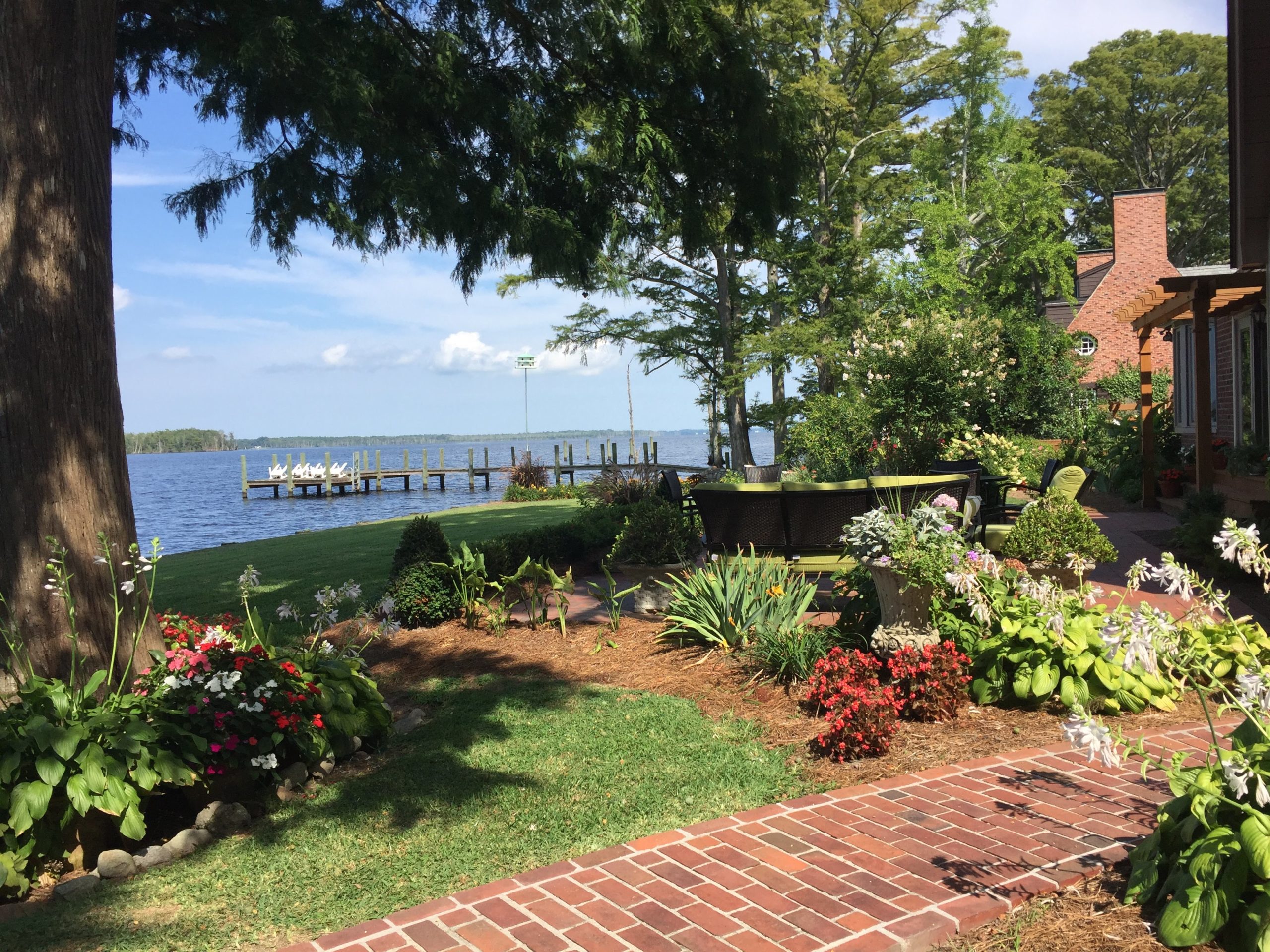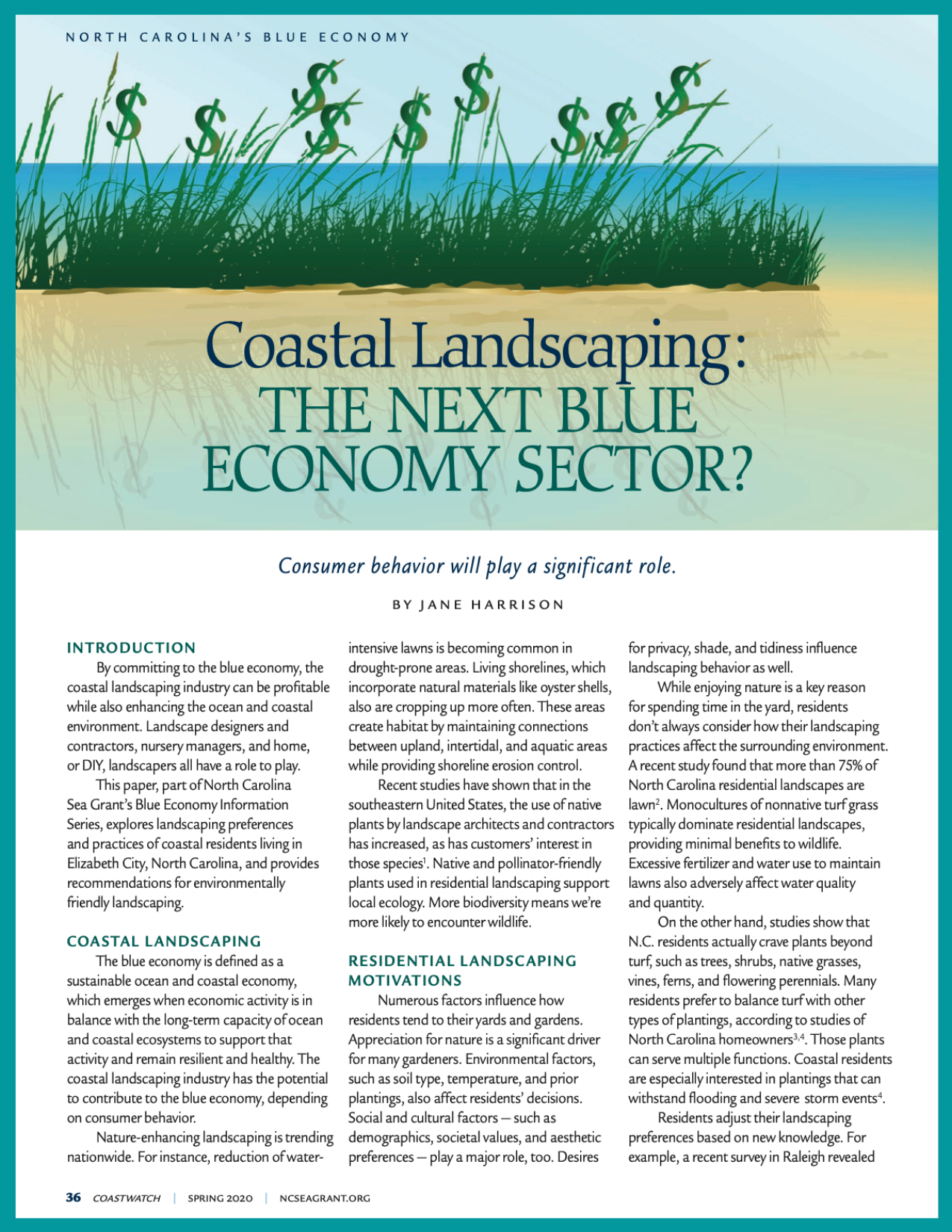Latest Blue Economy Newsletter Explores Coastal Landscaping

Above: This Elizabeth City yard includes a mix of native and nonnative species. Photo by Jane Harrison.
FOR IMMEDIATE RELEASE
Contact:
Jane Harrison, jane_harrison@ncsu.edu, 919-513-0122
The latest installment of North Carolina Sea Grant’s Blue Economy Information Series explores the role that the landscaping industry could play in the state’s blue economy, with a focus on Elizabeth City, North Carolina. Tips on environmentally conscious coastal landscaping are a key part of the piece.
A blue economy results when economic activity is in balance with the long-term capacity of ocean and coastal ecosystems to support that activity and remain resilient and healthy, explains North Carolina Sea Grant coastal economist Jane Harrison, the series’ author.
“By committing to the blue economy, the coastal landscaping industry can be profitable while also enhancing the environment,” she notes. “Landscape designers and contractors, nursery managers, and home, or DIY, landscapers all have a role to play.”

Nature-enhancing landscaping is trending nationwide. From incorporating living shorelines to more native plants in yards, residents are becoming more aware of the ecological benefits of sustainable landscaping.
In this edition of the newsletter, Harrison describes a survey she conducted in Elizabeth City that examined residents’ landscaping practices and preferences.
Specifically, the study considered what motivated people to care for their yard, why they chose certain plants, and what sorts of environmentally friendly activities they engaged in.
The survey found that appearance to others is the top motivator for yard care, while maintenance needs most affect plant decisions. The most common environmental practice is limiting chemical use.
“In interviewing Elizabeth City residents and touring their yards, I got an intimate sense of how they manage their properties,” Harrison explains. “Social pressures are highly influential, and sustainable landscaping practices are more likely to be adopted if they align with neighborhood norms.”
The newsletter also includes sustainable coastal landscaping tips, such as the following:
- Choose native and noninvasive plants well-suited to coastal conditions.
- Water and fertilize strategically to maintain water quantity and quality.
- Rejuvenate soil to enhance soil health.
- Select storm-ready trees to protect your home.
More details on the Blue Economy Information Series can be found here: go.ncsu.edu/BlueEconomy. Educational resources on coastal landscapes topics can be found at go.ncsu.edu/CoastalLandscapes.
##
North Carolina Sea Grant: Your link to research and resources for a healthier coast
- Categories:


